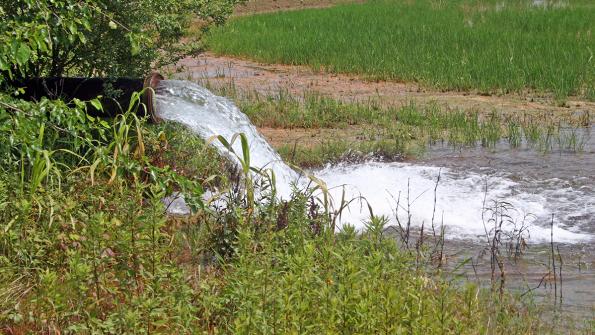December 1, 2016

Farmers from Arkansas and surrounding states will attend the Southern Agricultural Cover Crops, Soil Health and Water Management Conference Dec. 13-14 being held at the Arkansas State University Convocation Center in Jonesboro, Ark.
The conference, co-sponsored by USDA’s Natural Resources Conservation Service and the Arkansas Association of Conservation Districts, is designed to help farmers learn how to successfully adopt a cover crop management system and improve soil health and water management on their operations.
The conference provides a forum for farmers to exchange information, discuss opportunities for collaboration, and learn about new and successful practices related to cover crops, soil and water management.
Case study presentations will identify and discuss strengths and pitfalls of real applications.
Specific conference sessions will include: soil management; irrigation water management; pest management; growing cover crops to graze cattle on cropland; cover crop management, climate change, no-till farming, using gypsum and the economics of soil health.
Guest speakers will include NRCS and USDA Agricultural Research Service scientists, farmers, crop consultants, and university researchers who have extensive experience with various focal points of the conference.
One of the featured speakers for this year’s conference will be Gabe Brown, who will make a presentation on soil health.
Cover crops enhance soil health, increase soil water retention and keep nutrients in the fields.
Although cover crops can be effective under conventional tillage, they also improve soil health and ease the transition to continuous no‐till.
“Southern farmers cannot simply rely on the tried and proven management techniques that the Midwest employs to manage cover crops and improve soil health,” said John Lee, USDA NRCS state agronomist in Arkansas.
“Conditions in the South are different, and we need to plan to improve soil health according to southern agricultural farming practices and conditions farmers are facing here in the South.”
Part of the second day of the conference will focus on methods to improve water management. Irrigation water management saves money while reducing water use, improving water and air quality, and saving energy.
“Irrigation water management just makes good dollars and sense,” said Walt Delp, USDA NRCS state conservation engineer. “Every drop of water that does not runoff is water that is available for crop use and does not have to be pumped.”
One emerging field for conservation is selling carbon credits on the environmental market. Several speakers will talk about how to use less water for rice production, which in turn will produce fewer greenhouse gases.
Certified crop advisors can earn continuing education units for attending training at the conference.
For more information or to register for the Southern Agricultural Cover Crops, Soil Health and Water Management Conference, contact Debbie Moreland, AACD program administrator, at (501) 682-2915.
Registration packages are available at www.aracd.org.
You May Also Like




